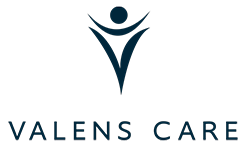The brain is one of the most complex organs in our body, but it is also one of the most resilient. When life takes an unexpected turn and suddenly you, or someone you love, is navigating the challenges of an acquired brain injury (ABI), it can be hard to find your new normal. But with the right acquired brain injury services and support, people with ABI can live a long and fulfilling life.
In this month’s blog we explore all aspects of ABI: the prevalence, recovery and how physiotherapy can support patients.
What is an acquired brain injury?
Acquired Brain Injury is one of the most common conditions affecting the brain. The prevalence of ABI in Australia continues to grow, with 1 in 45 Australians having an ABI which presents activity limitations [1]. ABI can be caused by both traumatic events, like a car accident or fall, or non-traumatic occurrences such as strokes, infections or tumours.
By definition, an acquired brain injury is “an injury to the brain, as a result of a cause, resulting in impairments”. [2]
Some of the conditions which can cause an ABI are:
- Car accident
- Fall resulting in head injury
- Stroke
- Brain tumour
- Degenerative disease
- Hypoxia/anoxia (lack of oxygen)
ABI also typically impairs younger people, with almost three-quarters of Australians with ABI being under 65 years old. [1].
Symptoms of an acquired brain injury
The impact of an ABI on day-to-day life depends on the severity of the injury and the part of the brain which has been injured.
The brain is divided into four lobes including:
- Frontal – responsible for personality and behaviours, including emotional regulation, planning, reasoning and problem solving
- Parietal – important for processing sensory information such as touch, temperature, pressure and pain.
- Temporal – important for processing sensory information such as hearing, recognising language and forming memories.
- Occipital – the primary vision cortex, responsible for the eyes
[3]
The symptoms for each person will differ depending on which lobe of the brain has been injured. This will impact the acquired brain injury behaviours for the patient. For example, someone with an injury to the occipital lobe will have trouble with sight, whereas someone with an injury to the temporal lobe may experience memory loss and trouble speaking.
Recovering after acquired brain injury
Suffering an acquired brain injury can be incredibly traumatic and navigating all of the ongoing medical appointments can be confusing and overwhelming, especially if you’ve never had to navigate the medical world regularly before. One of the questions you might be asking is whether you or your loved one will ‘recover’ from ABI.
Because there is such variation in the severity of acquired brain injuries, the recovering an acquired brain injury services will be tailored to each individual’s recovery.
Some of the people who may support you after an ABI include:
- Doctors
- In-home nurses
- Social workers
- Psychologists
- Speech pathologists
- Physiotherapists
Caring for someone with an ABI
If you are a carer or loved one of a person with an ABI, it can be hard to see them undergo extensive medical treatments and even have some changes to their abilities and personality.
- Seek support – things such as respite or professional allied health support can help you navigate the health system, find time for yourself and aid recovery.
- Stay informed – stay informed about support services for people with ABI. Consider following some of the specialised not-for-profit and advocacy groups such as Brain Injury Australia [Brain Injury Australia, the brain injury information and referral gateway]
- Celebrate small victories – finding a new normal after a brain injury takes time – and while learning to run might be on the goals list, take time to celebrate smaller wins along the journey.
Physiotherapy for acquired brain injury
Physiotherapy is an important component of rehabilitation and recovery after acquired brain injuries. Some of the things a qualified physiotherapist can help you with include:
- Exercises – for stretching and improving cardiovascular health
- Equipment recommendations – to support you navigate and understand acquired brain injury support devices.
- Retraining the brain – using neuroplastic training principles to improve your movement and independence in a range of physical tasks.
- Pain management – management of acute and ongoing pain including in your back, neck, and limbs.
- Strength building – maintaining and gaining muscle strength and support with relearning skills such as sitting, standing, walking, and running.
Working with ValensCare
ValensCare is a trusted and experienced physiotherapy practice, with team members who have special interest in supporting people recovering from an acquired brain injury. Our team has decades of experience in hands-on physiotherapy and will take the time to understand your medical needs but also your physical goals for the future; and we’ll work with you to reach them.
You can book an appointment with our team right here.
We would be honoured to work with you as you recover from ABI and support you to rebuild your strength.
Disclaimer:
All information is general and is not intended to be a substitute for professional medical advice. [Client name] can consult with you regarding your individual health needs.
References:
[1] Disability in Australia: acquired brain injury, Summary – Australian Institute of Health and Welfare (aihw.gov.au)[2] Understanding BRAIN INJURY (braininjury-au.info)
[3] Lobes of the brain – Queensland Brain Institute – University of Queensland (uq.edu.au)







